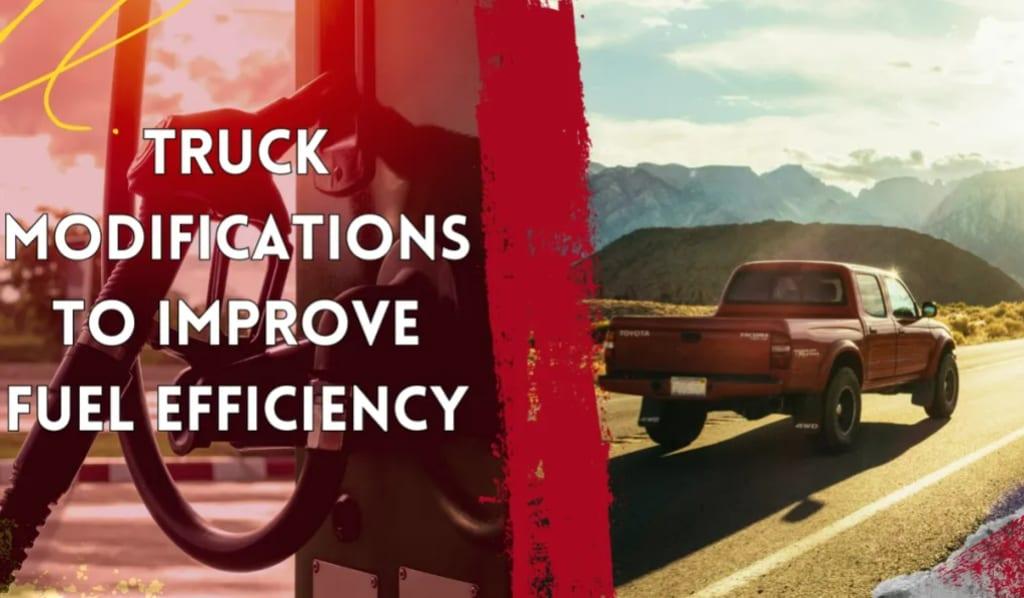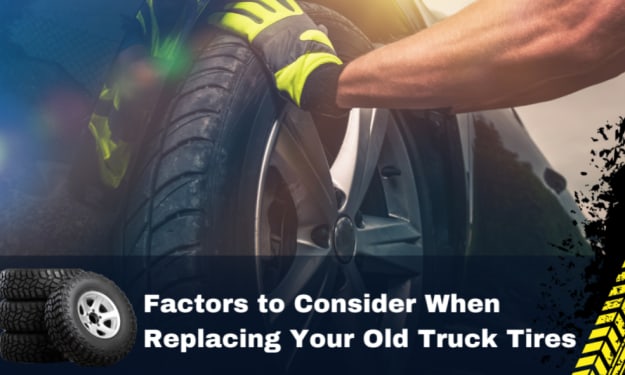Mods for Pickup Trucks: Reducing Weight and Saving on Gas
Modification for A Fuel-Efficient Truck

Pickup trucks are the workhorses of the road due to their versatility, power, and durability. They can help you do different tasks, especially if you want a multi-purpose vehicle for daily driving, towing, or off-roading. However, one area where they often fall short is fuel efficiency. These days, it can cost you an arm and a leg to fill the tank with enough fuel. With the rising cost of fuel and growing environmental concerns, many truck owners are seeking ways to make their vehicles more fuel-efficient.
Why do trucks have bad mileage?
Automakers designed pickup trucks with power and capability in mind. However, the versatility and functionality of trucks are often at the expense of fuel efficiency because of these reasons:
Body Weight
Pickup trucks are heavier than sedans, SUVs, and other passenger vehicles. They are constructed with larger engines, robust frames, intricate suspension parts, bigger wheels and tires, and other components to enhance durability and performance. The heavier the vehicle, the fewer miles it can cover. The engine of your pickup truck has to work harder to move forward at speed.
When it comes to fuel efficiency, every pound counts. Weight hurts the number of miles per gallon the vehicle can attain. Remove any unnecessary weight from your truck bed, like toolboxes or heavy equipment you do not regularly use. You can also consider lighter alternatives for parts, such as swapping your heavy bumper for a lightweight aluminum. That’s why newer unibody trucks have better fuel economy than body-on-frame variants. If the vehicle bears a hefty weight, more energy is required to move, resulting in higher fuel consumption.
Engine Size and Power
Pickup trucks are equipped with powerful engines to handle heavy weights. Although they are great for hauling substantial loads, the engines consume more fuel, even when they carry lighter cargo or just passengers inside the cab. Half-tons and trucks with dually wheels have larger engines since they are designed for hauling heavy loads and towing trailers. Half-ton pickups can carry at least half a ton of cargo in the bed and the cabin. These truck variants provide the necessary horsepower and torque due to their powerful engines. However, the bigger the engine and power output, the more fuel they consume.
Rolling Resistance
When the tires come in contact with the road, they create friction called rolling resistance. According to the Department of Energy, rolling resistance accounts for roughly 4 to 11 percent of the fuel consumption for a gas vehicle. Low rolling-resistant tires can help improve fuel by lessening the energy wasted as the tires flex. The energy converts into heat as the tires flex, which happens at the contact point between the tire and the road.
Aerodynamics
Pickup trucks are designed with boxy shapes and higher ground clearance, which creates more air resistance than more streamlined cars. The increased drag forces the engine to work harder and use more fuel, reducing the vehicle's fuel efficiency.
Intended Use
Many pickup trucks are used for hauling, towing, and off-roading. These tasks require more fuel than regular driving conditions, and the repeated idling, starting and stopping associated with them further decrease the truck's fuel efficiency.
Can Fuel Efficiency Be Achieved in Pickup Trucks?
You can transform your gas-guzzling rig into a more budget-friendly fuel-efficient truck. Achieve better gas mileage with a combination of these factors:
- Driving Habits: Modifying your driving behavior can significantly impact the truck's fuel consumption. You can save fuel by maintaining a consistent speed and avoiding rapid braking. Driving smoothly and with steady acceleration can improve fuel economy by up to 20 percent. Using cruise control when driving on highways can help maintain a constant speed, reducing excessive fuel use.
- Vehicle Maintenance: Well-maintained pickup trucks burn fuel more efficiently and lessen unnecessary strain on the engine. Regular maintenance protects the vehicle from breakdowns and helps it run efficiently. Replacing air filters, keeping the engine tuned, and checking the tires for proper inflation can increase fuel economy. Moreover, use the recommended grade of motor oil to help achieve optimal fuel efficiency.
- Weight Reduction: Reducing weight can result in considerable fuel savings for your vehicle. Choosing lighter materials when possible, removing unnecessary items that add weight to your truck, and opting for lighter wheels help improve fuel efficiency.
- Aerodynamic Enhancements: Improving the aerodynamics of your pickup truck can reduce drag, leading to improved fuel efficiency. You can install tonneau covers and other accessories to enhance aerodynamics or remove roof racks when not in use to help the vehicle move more smoothly through the air.
- Use the Right Fuel: Make sure the fuel grade you use for your pickup truck is what the manufacturer recommends. Premium fuel options are expensive, and higher-octane ratings do not provide better gas mileage. However, they are formulated with more compounds that help keep the fuel system clean.
- Plan Your Routes: Choose routes with less traffic to minimize the time spent idling or going into many stop-and-go situations. Combining a few errands into one trip can help save gas. If you expect to stop for a long time, it’s better to turn off the engine. Idling consumes fuel even if the vehicle is not moving.
Truck Accessories for Improved Fuel Efficiency
You can install several accessories to enhance a pickup truck’s fuel efficiency:
Tonneau Covers, Camper Shells, and Truck Caps
Arkansas Tech University research mentioned that pickup trucks have a higher drag coefficient than other vehicle types. A large low-pressure air pocket is created on the truck bed, which increases drag. It causes an inherent lack of aerodynamic efficiency. Automakers have found a few design solutions for the wind drag, such as the tonneau cover, truck caps, and the camper shell. While these designs are great for utility, they leave room for improvement in aerodynamics.
Wheels
Bigger and heavier wheels can increase fuel consumption because the added weight makes the engine work harder. Choosing lightweight alloy wheels instead of heavy steel ones can reduce the overall weight of the truck, leading to better gas mileage.
Tires
Pairing lightweight wheels with fuel-efficient tires can significantly improve your gas mileage. Brands like Nitto Tires offer products with tread patterns and special compounds that can help decrease rolling resistance. Low rolling resistant tires are designed with shallower treads to improve airflow over the entire truck and minimize drag. Moreover, it is crucial to take note of proper tire inflation. Over or underinflated tires create more drag and affect the truck’s fuel efficiency.
Air Intake Systems
Cold air intake systems can enhance fuel economy as they improve combustion. The air intake systems efficiently draw in a cooler, denser air outside the engine area. This leads to better performance and fuel efficiency. The air it pulls has more oxygen, which is crucial for combustion. Having a high-flow air intake system upgrade boosts the engine because the fuel and air mix efficiently for a complete burn.
Engine Tuners
Engine tuners and programmers are devices you use to reprogram the engine control unit (ECU) for better fuel efficiency. They improve the vehicle’s performance by optimizing the air-fuel mixture, ignition timing, and other pre-set parameters of the factory computer. As a result, the engine can run more efficiently with increased power and improved fuel economy.
Although pickup trucks may not match the fuel economy of smaller vehicles, adopting better driving habits, doing regular maintenance, and installing fuel-saving accessories can significantly reduce fuel consumption. Every gallon of fuel saved means more money in your pocket and ripples into a small yet beneficial environmental impact.
About the Creator
Jen Demkin
Hi, I'm Jen from 4WheelOnline. My fascination with vehicles started in my childhood. I like cars more than dolls. I enjoy writing about automotive industry news, vehicle maintenance tips, and more.
Enjoyed the story? Support the Creator.
Subscribe for free to receive all their stories in your feed. You could also pledge your support or give them a one-off tip, letting them know you appreciate their work.






Comments
There are no comments for this story
Be the first to respond and start the conversation.